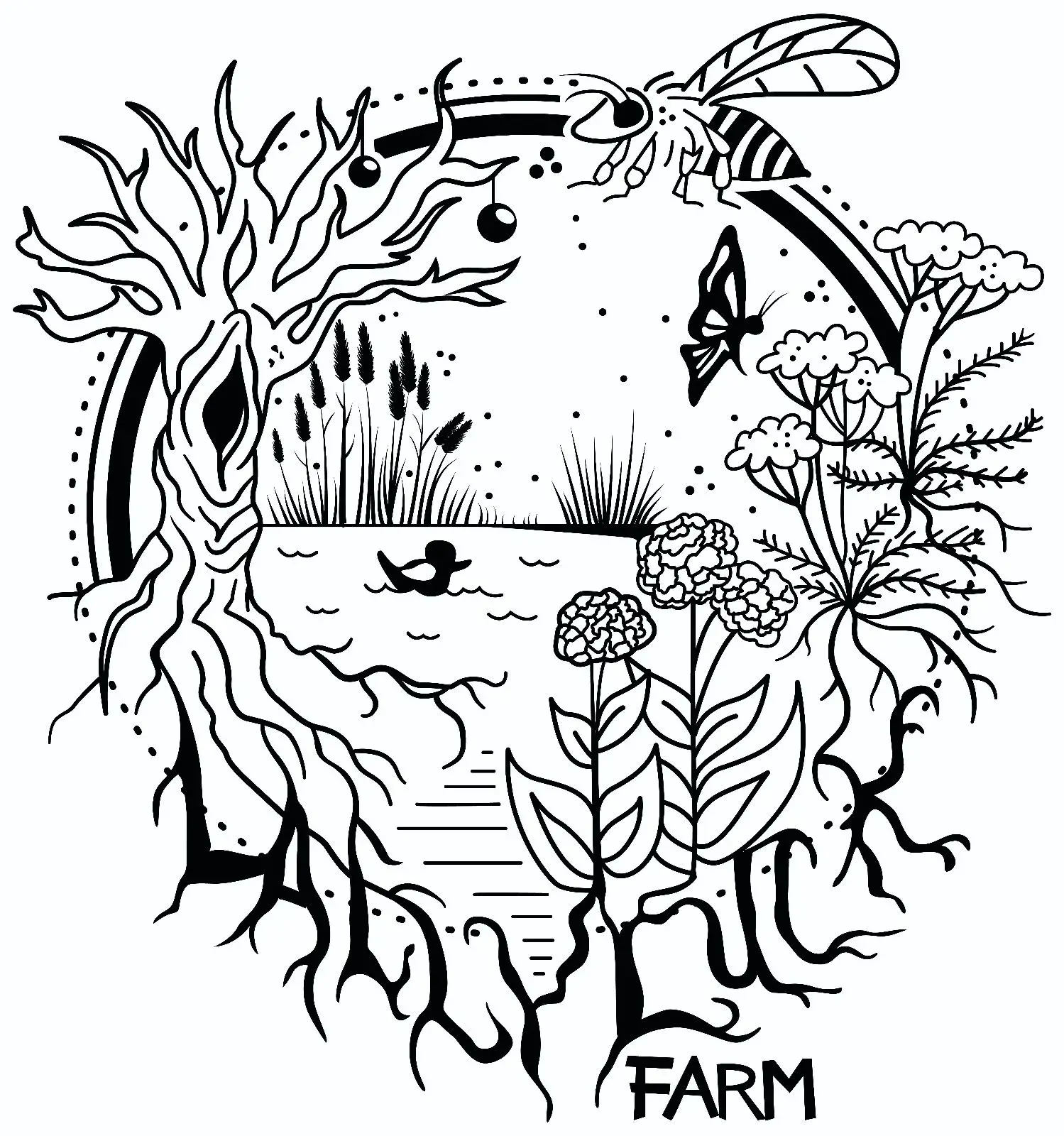I’ve got several small houseplants in my home office, and I really like having them around. I’m still pretty new to taking care of them altogether, though, and we’ve gotten dozens of tiny house gnats now. I’ve put up sticky traps and tried to use some pest control in the potted soil. But would a small venus fly trap be able to help here?
There are a few practical management steps you can take as well to help reduce the gnat load.
Sand (washed playground sand as an example) as a mulch layer over the top of the potting mix will drain quickly and removes the gnat’s preferred habitat for egg laying.
Bottom watering, while admittedly slower than pouring from the top, also helps to reduce the amount of time the top layer of soil is wet enough for them. Allowing the potting mix to dry thoroughly between waterings improves the efficacy of this practice.
I knew about sand but not bottom watering! Thank you for the info!
Apple cider vinegar in a bowl with a drop of dish soap will be a lot more effective.
Isn’t this more for fruit flies? I tried something similar for fungal nats and was unsuccessful. What worked for me was yellow sticky pads and letting plant soil dry out almost completely between waterings.
This is the best plan. They are prolific breeders so traps are useless if you don’t also eliminate the favorable breeding environment.
Gnats fuck.
Ha! I was just typing up a comment about the same thing and only saw yours after I submitted mine. Yours is much more clear and concise. I suck at brevity, lol.
As far as carnivorous plants go, I have had more success with butterworts. Sundews are also good. Venus flytraps are considered harder to grow in general and harder to keep alive indoors without manual feeding.
Can confirm sundews, specifically the commonly found Drosera capensis is very easy to care for and should be good at catching bugs as long as they land on the tentacles
Chiming in to double confirm! Sundews/ Drosera/ “Death-by-lollipop-hugging” are super fun and cute and will go to war on insects. I’ve also had great luck with growing lowland and highland Nepenthes, tropical pitcher plants, indoors. Carnivorous plants are sometimes a little picky about temperature and humidity, especially the colder-climate ones that require dormancy periods, but there are some really rewarding and fairly forgiving ones.
Fixing my neighbor’s trash can problem was what I needed to solve my fly infestation a couple summers ago, but my apartment bog ab-so-lutely racked up a ton of kills during the war.
Pro-tip: Carnivorous plants usually evolved in some nutrient-lean areas and can be pretty sensitive to the salts and minerals in tap water. A Total Dissolved Solids meter is cheap and helpful for double checking to make sure you aren’t going to run into trouble. Some people don’t have to worry about it, some do. I have a still for distilling water at home, lots of people rig up rain catchment systems, or buy reverse osmosis water at the store. There are options.
Thanks for the info! I ordered a sundew and I’m very excited for it to arrive.
No, not really. My VFT catches gnats but I don’t think it would effectively reduce them overall.
Good to know! I was really hoping someone out here would have first-hand (leaf?) experience. Thank you!
I’m going to agree with them. I had one as a kid and while I didn’t ever see it catch a gnat I can pretty much guess how it would go.
They’ll snap shut at the lightest touch so you get one maybe two gnats in there and it shuts. Then, at least with mine IIRC, they always took 30 minutes to an hour to reopen even if they didn’t catch anything.
I also don’tthink they’d keep up but, depending on how many gnats you’re seeing, and how many VFTs they might. They are cool as hell though so honestly it ain’t gonna hurt to try.
A vacuum with a hose on it can also help to reduce the population load enough that the other measures have a chance of eliminating that problem.
You’ll look like a crazy person while doing it though.My partner does all the stuff mentioned by other posters; bottom watering, mosquito bits solution, a carnivorous plant with sticky leaves.
Still have gnats!
One thing I have seen her use are sticky gnat traps
[Like these](Effective Fruit Fly Trap - Yellow Sticky Traps for Gnats and Plants - Get Rid of Fruit Flies with Gnat Sticky Traps - Perfect for kitchens, patios, picnics https://a.co/d/1e1qeC1)
They are the only thing I have seen that cuts down on them.
Fungus gnats are generally the result of overwatering your plants. Let the soil surface dry out between waterings, and they’ll disappear.
I don’t know that they’d be able to keep up with them, like the other commenter said.
Something that’s always worked a treat for me is to mix up some apple cider vinegar, some dish soap (I think they call it fairy liquid or washing up liquid in the UK?), and a little bit of sugar. I usually use a mason jar and put a little over an inch of apple cider vinegar in, then add the rest and stir it up. The vinegar and sugar attracts the gnats and the dish soap helps keep them from being able to escape once they touch the mixture. It works really well and I always find way more gnats in there than I even realized I had, lol. If it’s a big space, I’d put a few scattered around.
It does smell like vinegar, though… but I’ve found it’s worth it. It completely took care of the issue a few different times (until they’re introduced again, but there’s a lot of gnat-free time in between for me.)
I’ll definitely give this a try, thank you! It’s incredible how many there are
You mentioned pest control in the soil - have you tried mosquito bits? I ended up mixing some in with the soil for a Monstera and I also put a layer over the top and it does seem to make a difference. I do have to combine it with those unsightly yellow sticky traps, though. Between plants and the inverts I keep, my house is full of containers of damp dirt.
In case anyone is thinking about getting a katchy, you can read the reviews, but I give it a thumbs-down. I used it only a few times before fall and it worked okay, but when I pulled it out again in the spring I just get orange error lights and no response when I reached out to them.
I actually just worked some mosquito bits into my soil this week! Very hopeful to see how it helps
We have had good luck with our Katchy for over a year now; 1 year 8 days. It has worked great in the kitchen and in the office. Just recently a large number of small moths got into the office through a window, they were all over the ceiling. Placed the Katchy in there overnight which caught all of the moths; had to replace the sticky pad because it was so covered.
No clue on how long the device will last. We mainly use it on the 3rd speed setting (out of 5) and most often have it set to auto which turns the device on when light is low enough. We’ve likely replaced the sticky pad 4-5 times during the year we have had it.
This is the model we have: https://www.amazon.com/gp/product/B08TKG5M4S
I’m glad you’ve had better luck with Katchy than I did. I bought it because of a personal recommendation, but it didn’t really work long enough for me to determine if it was better than sticky traps.
Plus I’m the weirdo with a soft spot for moths, so I just generally leave them to fight it out with the spiders :). I cannot handle the fungus gnats flying up my nose, though. It doesn’t seem to matter if there is one fungus gnat or fifty - they all think there’s a party in my nostrils.
I cannot handle the fungus gnats flying up my nose
😱
I assume by pest control in the soil, you mean diatomaceous earth?
+1 for the apple cider vinegar / dish soap thing. That and diatomaceous earth was enough to get them under control for us. Also make sure you don’t have water standing under the pots if you have those little dish things - we found one of them had backed up and a bunch of water was under the pot.
I do have those little water dishes. I’ll check those out to see if I’ve got any standing water. Thank you!
I’ve tried this and the answer is no. You really just need to get rid of whatever’s attracting the gnats.
Not as much as you’d probably like. A Venus fly trap wouldn’t eat enough quickly enough to be an effective solution.
Probably not. Maybe I had a lazy flytrap growing up, but mine failed to catch a fly half of the time because they wouldn’t set off the hairs. A pitcher plant might be a better alternative if you wanted to stick with a plant based solution.
There are a few plants that would help with your savage garden desires.
Check out pitcher plants for example. These plants use a pitcher of nectar water to attract bugs who get stuck and slowly dissolved in the water - any captured flies act as fertilizer for the plants.
Alternatively look up “sundew” plants - They are essentially leaves with sticky “dew” that catches bugs which land on the surface of the leaves (and slowly absorbed the fly - some varieties will even curl up around the bug to digest it faster)
Both of these plants grow best in a “bog planter” (imagine a mini swamp on your desk) - with a tray of water constantly full to keep the soil “damp” at all times. I ended up 3D printing my own bog planters for my pitcher plants. My Sundew died, but I need to buy another one - I enjoyed growing them.
Oh this sounds like a lot of fun. I’ll have to look into these!
Pro tip, you need to use reverse osmosis purified water. They are very sensitive to chemicals and tap water will kill them quickly. If they are not a tropical breed, you will need to toss them and the seed in the fridge over winter to keep them alive and allow them to flower the next year.
Oh yeah, very good points. Although I’m lazy with my purple pitcher plant. It gets tap water from the hose because I never have enough quality RO water to keep them from drying out and they seem to be doing fine in my climate.
But totally I’m pretty sure my sundews died from not using adequate RO or distilled water.
I had a huge fly trap I been growing for years. Watered it with tap water once or twice since I was out and lazy. It never recovered.
Put ground cinnamon on your soil. It kills the larvae.









